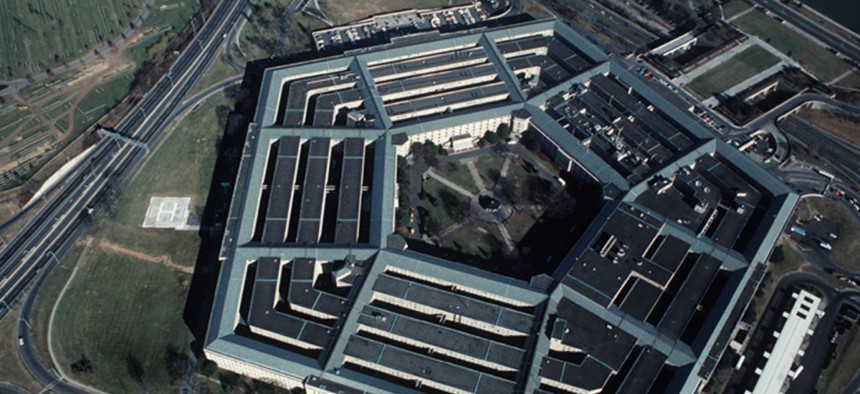
Defense Department file photo
Pentagon Eases Blockade of Access to Science Group's Website
Federation of American Scientists said to have exposed classified information.
For the past six months, Defense Department employees attempting to read online blogs on the Federation of American Scientists were presented with a notice saying, “Access to this website has been blocked for operational reasons by the DoD Enterprise-Level Protection System.”
As explained in a Wednesday posting by Steven Aftergood, director of the federation’s Government Secrecy Project, the blocking was imposed by U.S. Cyber Command for reasons that are “unclear….Official documentation of the decision that we requested has not yet been provided. In all likelihood, it is due to the presence on the FAS website of a small number of currently classified documents that were obtained in the public domain.”
Defense partly lifted the blockage at the beginning of September, and Aftergood said he was equally unclear about the basis for doing that, “though we know that a number of DoD employees complained about the move and advised US Cyber Command that direct access to the FAS website was needed for them to perform their job.”
Government Executive obtained a statement from U.S. Cyber Command saying that it “routinely directs blocking of access to Internet content via Department of Defense networks when content violates Department of Defense policy. In this case, the Federation of American Scientists' domain (FAS.ORG) was hosting content marked as classified and access to the domain via Department of Defense networks was blocked to avoid potential unauthorized access.
“Joint Force Headquarters - Department of Defense Information Networks periodically reviews blocks that are put in place and has subsequently applied a more tailored block at the beginning of September 2016 to the FAS.ORG hosted content,” the statement added.
Hence the website is again available to Defense employees, “but links to documents marked as classified remain blocked on DoDIN. This blocking process is part of DoD's defense in depth approach to protect the DoDIN from potential unauthorized access to classified material that is sourced from the public domain.”
NEXT STORY: The FBI's Impersonation of an AP Editor







